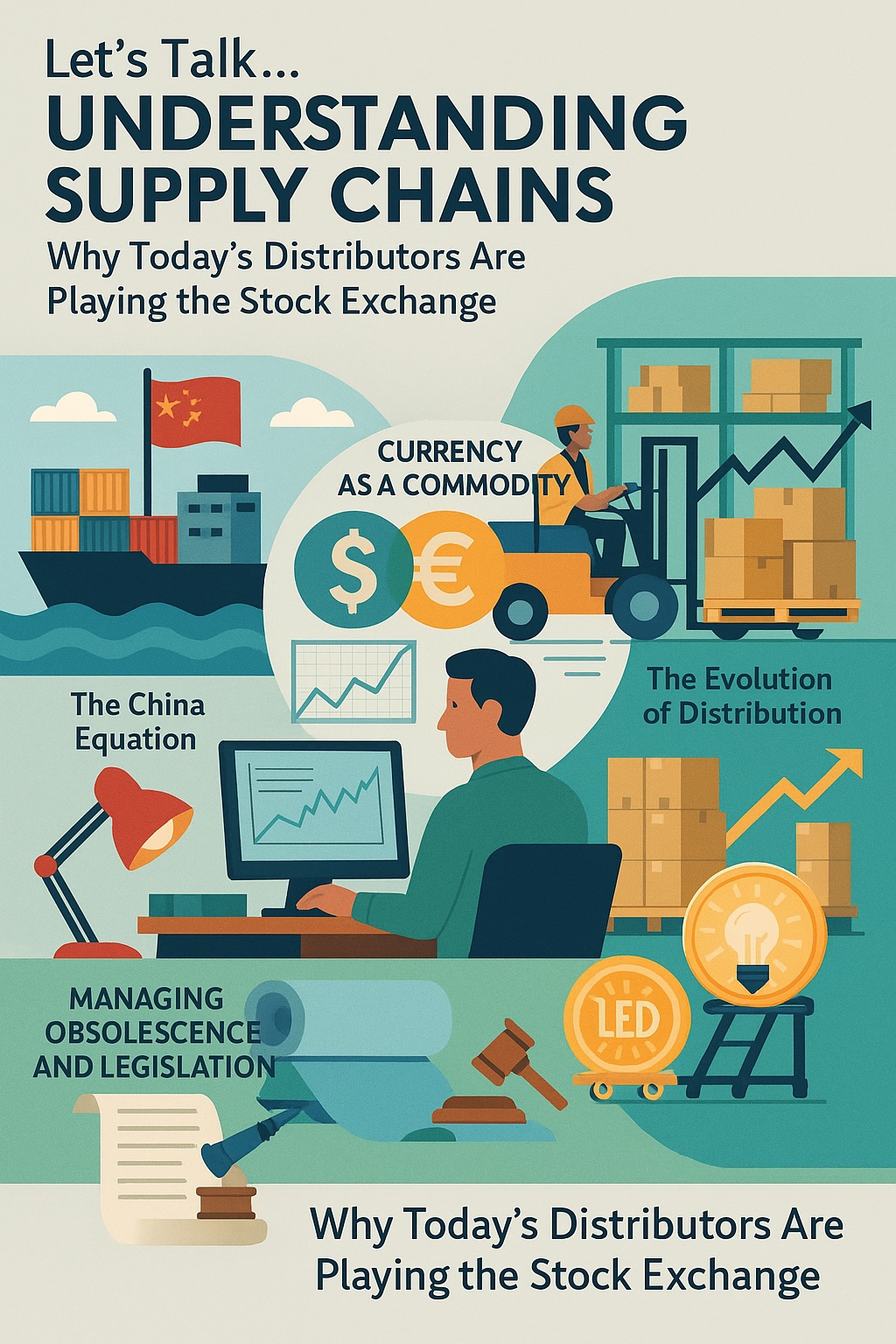Why Today’s Distributors Are Playing the Stock Exchange

For companies like E-Service, which supplies spares and components across the UK gaming and amusement industry, managing the supply chain has become as strategic as it is logistical. While the public face of the business may be parts, printers, and payment systems, behind the scenes, the company operates more like a micro stock exchange -constantly balancing currency risk, global politics, manufacturing trends, and consumer preference to stay ahead of the game.
The China Equation
Like many in the sector, E-Service sources a significant proportion of components from overseas - particularly China. It’s a relationship built over many years, and one that requires consistency, trust, and adaptability. Maintaining regular shipments, opening up delivery schedules, and even localised warehousing have all become part of the strategy to keep products moving and shelves stocked.
But political disruptions such as Houthi rebel activity in the Red Sea, rerouted shipping via the Cape of Good Hope, and unpredictable delays at the Suez Canal can quickly undo even the best-laid plans. Add fluctuating global demand, inconsistent production schedules, and the challenge of dealing with minimum order quantities that can stretch well into five or six figures, and the job of a parts distributor starts to look far more complex than simply “shipping boxes.”
Currency as a Commodity
E-Service trades in euros, pounds, and US dollars and must monitor financial markets daily to buy currency when rates are favourable. There’s no third-party trader. No outsourced brokerage. The small in-house team manages currency purchasing, dollar accounts, shipping, warehousing, sales, and distribution directly. “Did we expect to be currency traders? No,” says Mike Clokie, E-Service Managing Director. “But it’s become essential. It’s all part of protecting our customers from volatility.”
This financial watchfulness is not just about margins - it’s about survival. The company’s commitment to value means buying at the right time and passing savings on. It’s one more way E-Service differentiates itself in a sector where price pressures are increasing and margins are tighter than ever.
The Evolution of Distribution
As the number of original machine manufacturers has dwindled, many component producers have shifted their strategy; choosing to deal directly with manufacturers rather than going through traditional distributors. This shift has had a knock-on effect for companies like E-Service, which are now expected to commit to far greater quantities just to access competitive pricing. That kind of volume requires major stockholding and serious capital investment.
And therein lies the risk. With product development cycles shortening and design trends changing rapidly, distributors risk holding significant stock of items that may become obsolete. A lighting fitting that was standard one year may be replaced by LEDs the next. A run of powder blue pool cloth might sell out in weeks or sit untouched for a season while fashion swings back to classic green. Even something as simple as wedge lamps, once an industry staple, are being replaced by long-life LED alternatives that can last 25,000 hours or more – meaning that it will take quite some time before they need replacing!
Managing Obsolescence and Legislation
The challenge isn’t just about what sells; it’s about what you’re still holding when it doesn’t. Disposal legislation and environmental regulations make it more difficult (and more expensive) to simply clear out obsolete stock. That adds another layer of complexity and another reason why distributors are becoming ever more selective about the products they commit to and incentivise.
To navigate this, E-Service carefully segments its portfolio into standard, Silver Seal, and Gold Seal products, ensuring operators have access to both reliable essentials and high-performance alternatives. The company also leverages its extensive inventory to stabilise pricing by buying more when prices are favourable and passing those savings on to customers.
A Balancing Act
In today’s market, being a distributor is about far more than moving goods. It’s about managing risk, building supplier relationships, forecasting trends, and understanding the financial mechanics behind every purchase. It’s about holding stock in bulk so that operators don’t have to. And, critically, it’s about doing all this while maintaining the service levels and flexibility the gaming industry demands.
The team at E-Service embraces this complexity because they know one thing for certain: their success is tied directly to their customers’ ability to keep games running and players playing. And that’s a responsibility they take seriously; no matter what’s happening on the world stage.
21 August 2025
No comments have been posted yet.
Please sign in or join the network to post comments
Blueprint: Fresh Ideas, Pub Focus, and a Big Reveal at ACOS
As the industry gears up for the Autumn Coin-Op Show (ACOS), Blueprint Operations is preparing to showcase a new-look stand, a packed product...
Reflex Gaming delivers first-ever dual release with Devil’s Delight this Halloween
Reflex Gaming, the UK’s largest independently owned omni-channel game supplier, marks a milestone this Halloween as the company cements its...
SEGA AMUSEMENTS INTERNATIONAL STRENGTHENS EXECUTIVE TEAM
SEGA Amusements International Ltd, a global leader in the development, production, and distribution of amusement arcade games, is pleased to announce...

